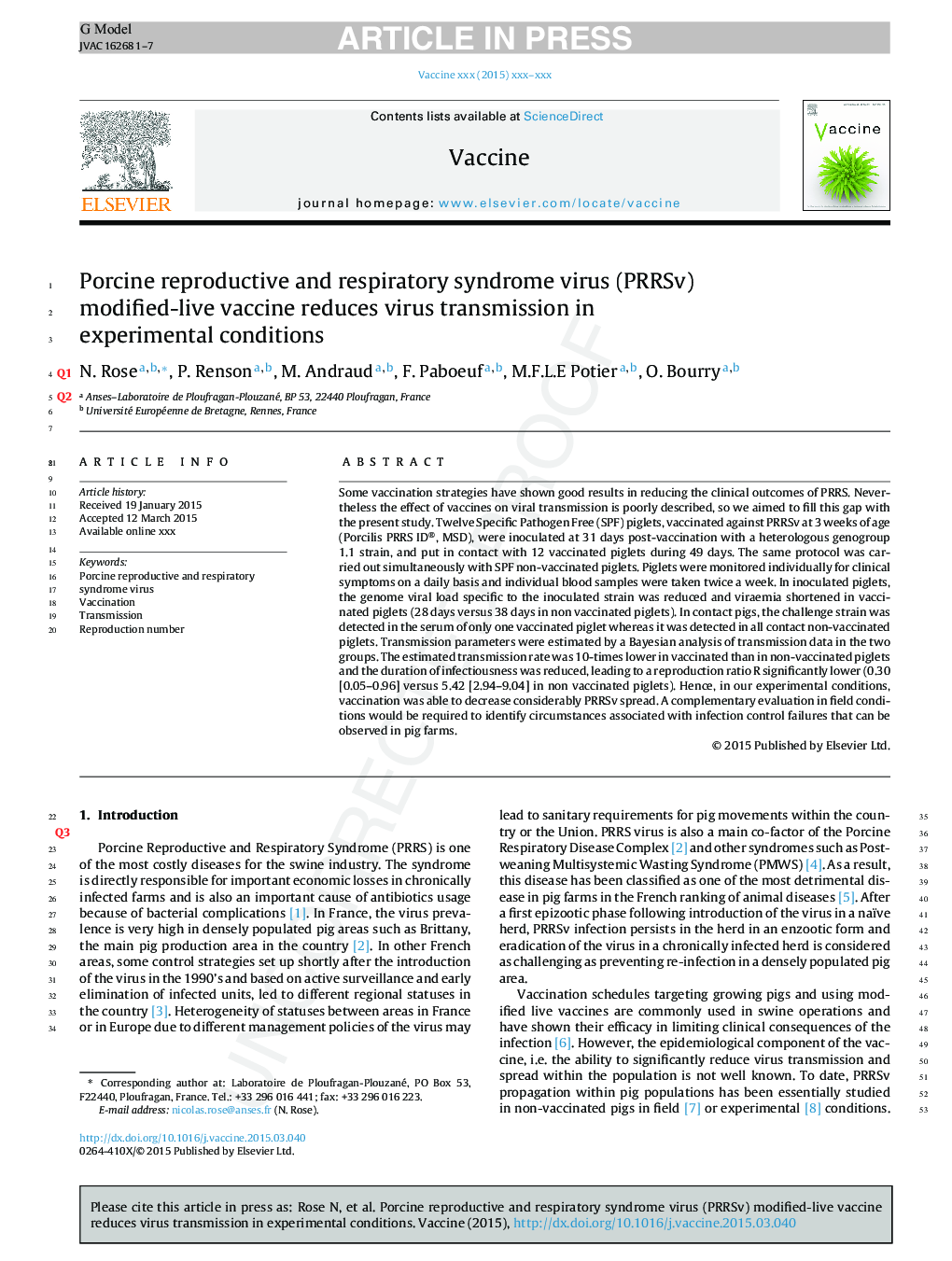| Article ID | Journal | Published Year | Pages | File Type |
|---|---|---|---|---|
| 10965525 | Vaccine | 2015 | 7 Pages |
Abstract
Some vaccination strategies have shown good results in reducing the clinical outcomes of PRRS. Nevertheless the effect of vaccines on viral transmission is poorly described, so we aimed to fill this gap with the present study. Twelve Specific Pathogen Free (SPF) piglets, vaccinated against PRRSv at 3 weeks of age (Porcilis PRRS ID®, MSD), were inoculated at 31 days post-vaccination with a heterologous genogroup 1.1 strain, and put in contact with 12 vaccinated piglets during 49 days. The same protocol was carried out simultaneously with SPF non-vaccinated piglets. Piglets were monitored individually for clinical symptoms on a daily basis and individual blood samples were taken twice a week. In inoculated piglets, the genome viral load specific to the inoculated strain was reduced and viraemia shortened in vaccinated piglets (28 days versus 38 days in non vaccinated piglets). In contact pigs, the challenge strain was detected in the serum of only one vaccinated piglet whereas it was detected in all contact non-vaccinated piglets. Transmission parameters were estimated by a Bayesian analysis of transmission data in the two groups. The estimated transmission rate was 10-times lower in vaccinated than in non-vaccinated piglets and the duration of infectiousness was reduced, leading to a reproduction ratio R significantly lower (0.30 [0.05-0.96] versus 5.42 [2.94-9.04] in non vaccinated piglets). Hence, in our experimental conditions, vaccination was able to decrease considerably PRRSv spread. A complementary evaluation in field conditions would be required to identify circumstances associated with infection control failures that can be observed in pig farms.
Keywords
Related Topics
Life Sciences
Immunology and Microbiology
Immunology
Authors
N. Rose, P. Renson, M. Andraud, F. Paboeuf, M.F. Le Potier, O. Bourry,
